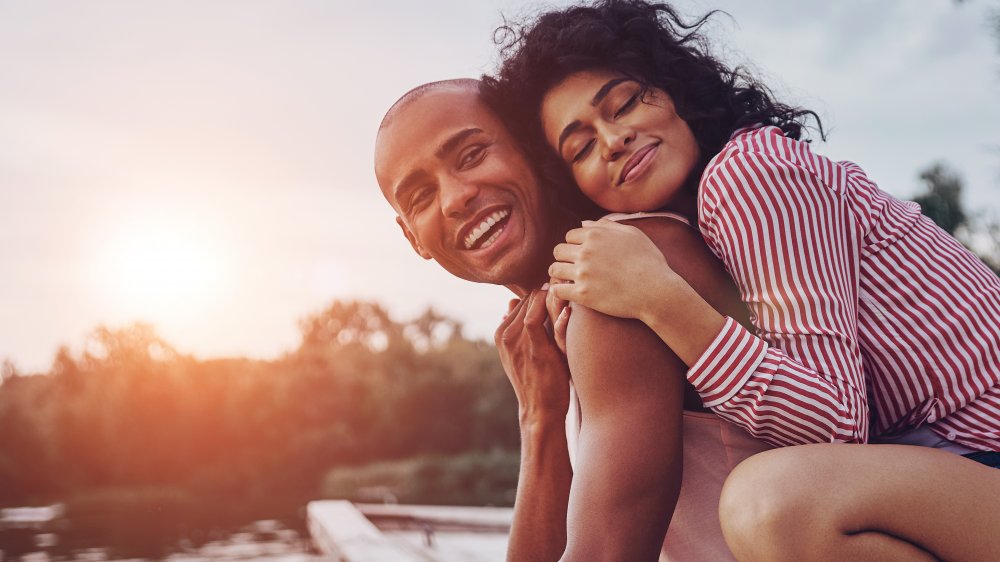Here's Why Your Parents Look Alike
As far as you know, the branches of your family tree are not intertwined — your mom and dad are not siblings or cousins. Maybe you even have the Ancestry.com results to prove it. Yet, they look like they could be related — they have a similar smile, and their foreheads furrow in the same way when they are mad. There are also tons of celebrity lovebirds who share facial features, from Steph Curry to his lookalike wife, Ayesha, to the equally gorgeous Blake Lively and Ryan Reynolds (via HuffPost). It's not just heterosexual couples who tend to look like siblings, either — there's an entire Tumblr, Boyfriend Twin, dedicated to men who resemble their husbands and partners. So, what gives?
Multiple scientific studies have proven that couples often resemble each other, but scientists are split on the reason why that is. A University of Michigan study analyzing newlyweds who did not look alike when they got married found that the couples shared a number of physical resemblances 25 years later — likely because shared emotions had produced similar patterns of wrinkles (via The New York Times). However, a new study by Stanford University researchers contradicted these findings, noting that couples actually chose partners who looked like them, and they did not grow more similar-looking over time (via Fox News).
We prefer familiarity in our romantic partners
So, why would we be drawn to someone who shares our facial features — doesn't that make us kind of self-obsessed? "It just feels kind of dark and perv-y. And then it also makes you worry: are you a narcissist if you're attracted to people who look like you?" a woman who repeatedly dated other women who looked like her told Time. In fact, however, there is nothing abnormal about gravitating towards someone who looks like you — it just means you're drawn to the familiar. "These traits might come to be seen as comforting," social psychologist Justin Lehmiller explained to the outlet. "They're familiar to you."
There's also an evolutionary explanation as to why we pair off with people who have some of the same physical traits as us — it's a concept called assortative mating, and it ensures you pass on the maximum number of your genes to the next generation (per Brightside). And the similarity we prefer isn't just skin-deep. A study published in Nature Immunology showed that partners often have similar immune systems — yet another way we're wired to select a spouse who will be with us for the long haul.

